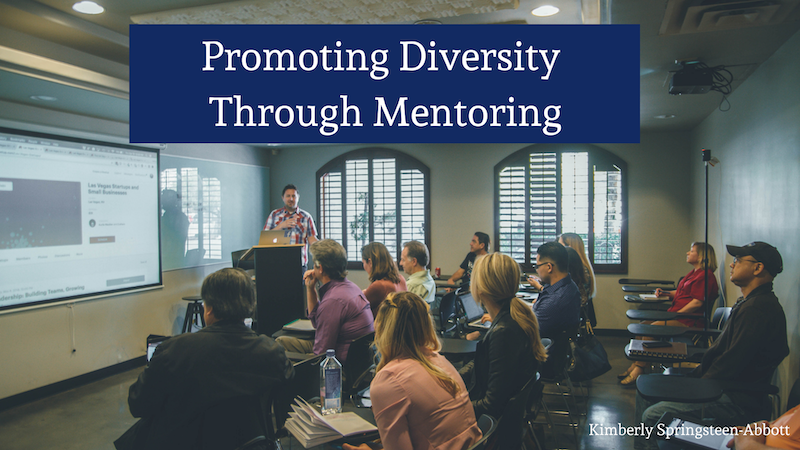When employee and company goals align the rate of success increases immensely. To make sure that your organization is in sync with those you employ, it’s important to ensure that employees are engaged and satisfied with their jobs. While benefits and the rewards of salary can bring talent in, retaining employees takes much more effort on the management’s part. Most people want to feel that they are doing meaningful work. Furthermore, it’s proven that when people feel a connection between their personal and professional development they are more productive.
It seems that employers are consistently creating policies to generate diversity in the workplace. Elements of diversity include ethnicity, gender, and age of employees. However, something that many organizations overlook is the need for professional diversity. This means establishing a team of employees that have different perspectives, experiences, and skill-sets.
Thus, to implement true diversity, mentoring programs can be used to facilitate great results. An authentic workplace allows individuals to voice their opinions and encourages creativity. Mentoring can help to foster these outcomes through matching employees and assisting them in establishing relationships that will help them develop professionally.
In a mentoring program, it is important that expectations are clear. It cannot be something that human resources require. Instead, the relationships should feel personal. It’s a good idea to allow those involved in the program to have input into who they’d like to be matched with, ensuring that it is a successful pairing. Mentoring is a way for an individual to receive guidance from someone else with more experience, not a means to get fast-tracked for promotion.
Mentoring can help an organization to embrace and appreciate employee differences. By using the program to diversify the workplace you can help match participants with those that can help them learn in a style that is suited for their particular needs. It helps teach a wider array of skills and can improve positive qualities that the employee has already shown an aptitude for.
A company that harnesses the power of mentoring usually views its employees as consumers, to an extent. Similar to customers, employees can move on to another employer that offers better service. Many companies are beginning to use mentorship programs as an onboarding tool or a productivity booster. The programs have been shown to attract younger employees that are seeking ongoing development from their employers. Mentoring can also help to retain talent by creating true job satisfaction.
Workplace diversity programs may want to consider what mentorship programs are getting right. One study, conducted at Cornell University, showed evidence of the promotion and retention rates of minority groups and women improving drastically within a mentoring program, versus the non-mentored. It also showed a greater representation of minorities at the management levels.
Both parties in a mentorship benefit from the relationship. Overall encouragement of growth may be the key factor in employees’ willingness to strive for more. Mentoring is a unique approach to promoting the diversity that has proven to be effective for many successful businesses.

